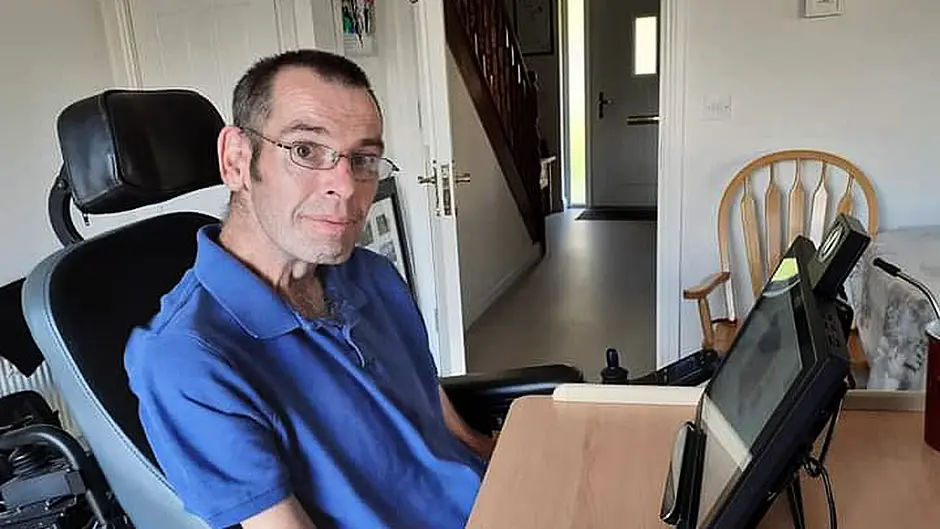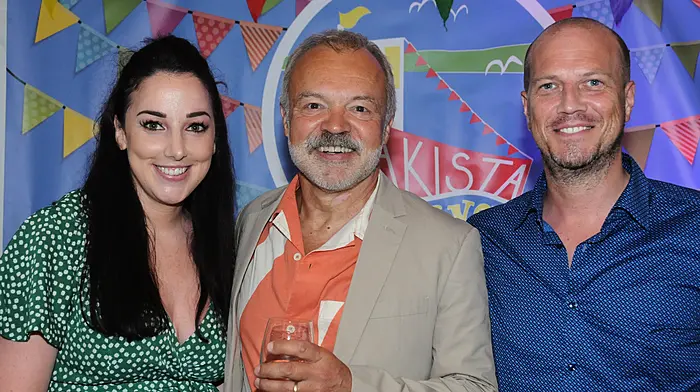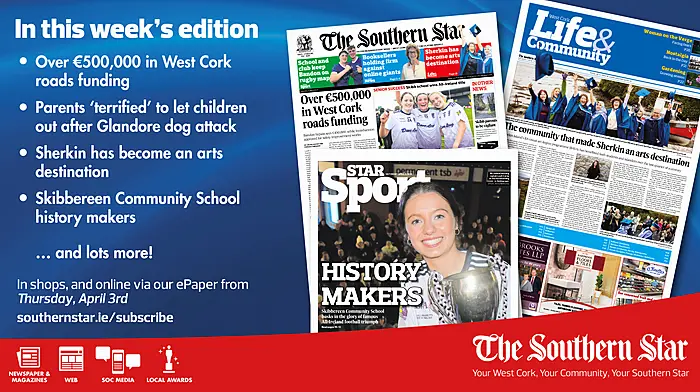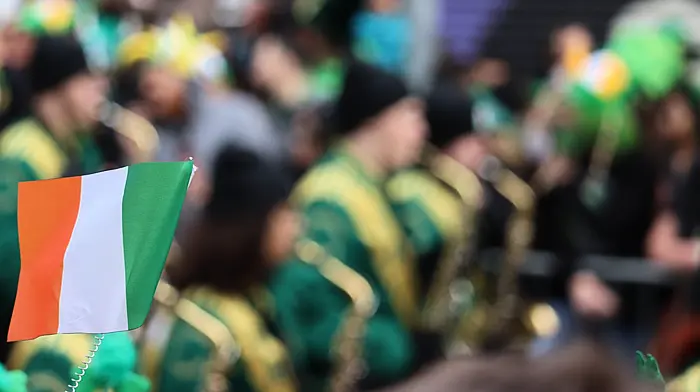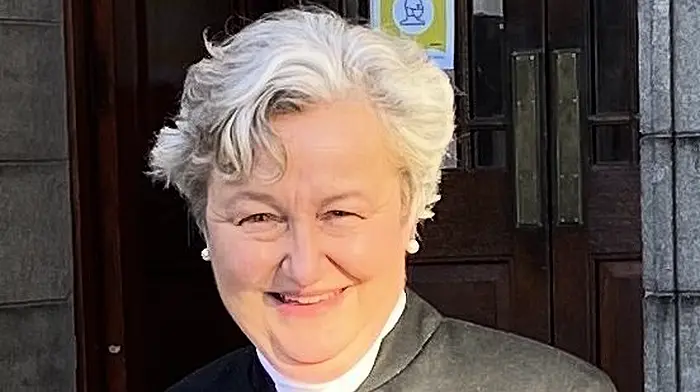Clonakilty man Michael Hurley lost his three-year battle against Motor Neurone Disease, but now his wife Valerie is making sure his memory lives on through her fundraising work
IF it hadn’t been for a special speech assistance tablet, Clonakilty man Michael Hurley would not have been able to tell his wife that he wanted to go for a trip around his home town.
The 44-year-old was diagnosed with Motor Neurone Disease in 2017 and it claimed his voice four months before he lost his battle against the condition last October 25th.
Just three weeks earlier he had suggested, through a special tablet from the Irish Motor Neurone Disease Association (IMNDA), that he and his wife Valerie go for a walk around Clonakilty, not knowing that it would be his last time.
While it’s a sad memory for Valerie to recall, it explains why she’s motivated to continue fundraising for the charity because of all it did for Michael and the family, especially helping him have his voice heard right to the end.
Michael was diagnosed with the neurological condition on October 13th, 2017. An avid sports man, Valerie noticed that his right arm had become much slighter than his left and within three weeks of seeing his GP, he was diagnosed with the condition by a neurologist in Bantry. He was then referred onto CUH to the MND clinic and to Beaumount Hospital.
Valerie spent three years and eight days caring for her partner of 18 years, and husband of 14 years, during which time he lost the use of his arms, became dependant on a wheelchair, which she said he hated, finally losing his voice.
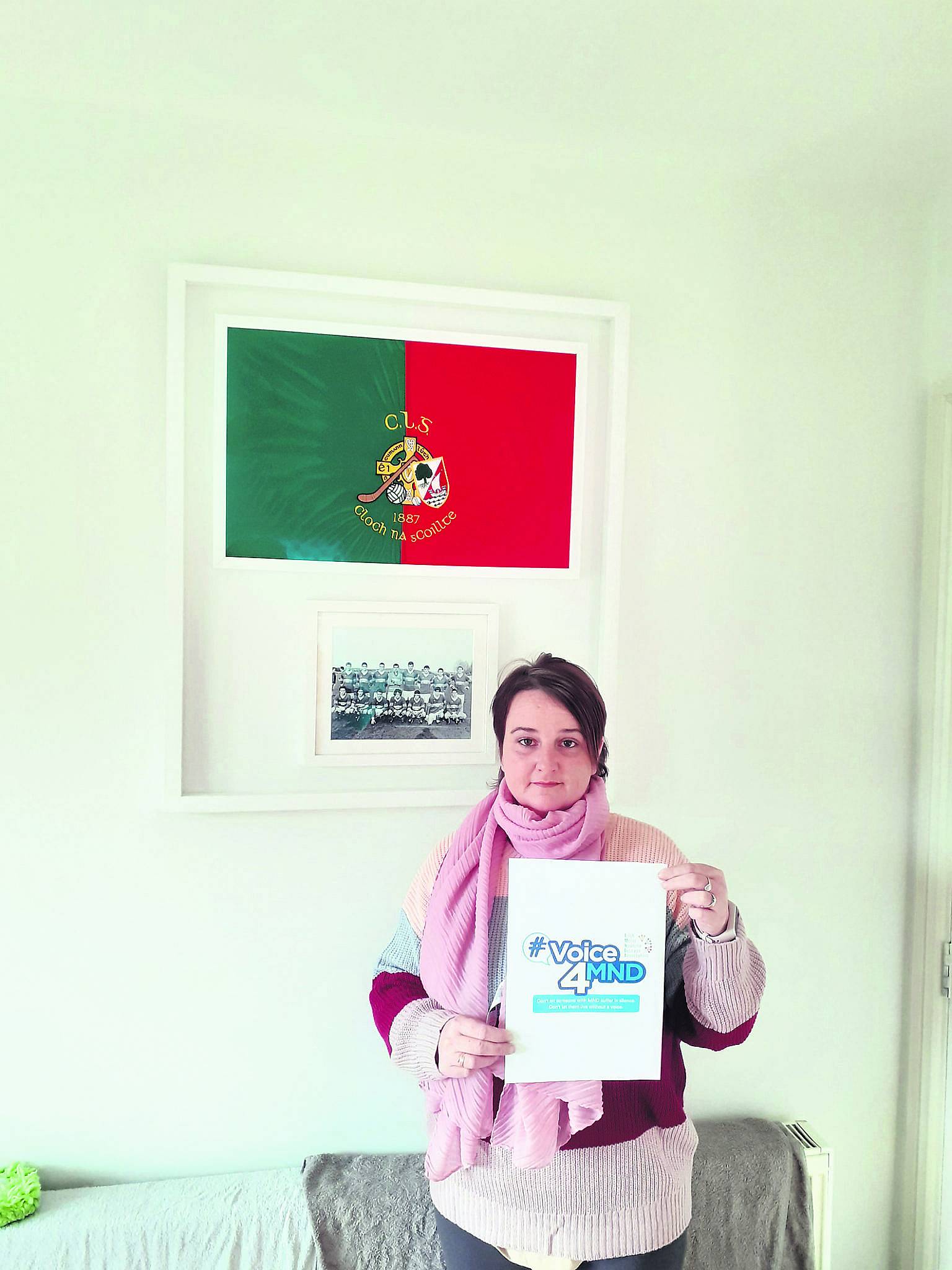 Valerie highlighting this month’s sponsored silence fundraiser.
Valerie highlighting this month’s sponsored silence fundraiser.
‘That was really, really difficult for him. He couldn’t even ask for a cup of tea and a fierce anxiety developed in him. If you lose your voice you lose the ability to make decisions for yourself, you lose everything. I could see his whole demeanour being overcome by the situation,’ she said.
‘When we got the tablet from the IMNDA, that became his voice and he was able to get across simple things, like “I don’t want to wear that shirt.” But more importantly it allowed us that last trip out together, without it he wouldn’t have got that message across to me,’ said Valerie.
The mother of four boys says the IMNDA and all the other services that helped Michael and the family were truly amazing: ‘From the equipment provided, to many appointments between Bantry and Marymount palliative care services, our local health providers were always here to help at any time. There are just no words to thank all those who provided such wonderful care and support.’
She said Michael’s biggest fear was being alone and the thought of being in hospital terrified him which is why she cared for him at home with the help of the IMNDA.
 Michael with his four boys Dillion, Colin, Shane and Calum on holidays in Tenerife in April 2019.
Michael with his four boys Dillion, Colin, Shane and Calum on holidays in Tenerife in April 2019.
Naturally since his death, Valerie, originally from Carrigaline, has good days, and bad, but because she saw the suffering he experienced daily, she knows her husband has found peace.
‘The last three weeks were especially horrendous. We couldn’t have watched another day of that, to see a man who was over six foot and 16 stone, to be reduced to someone unrecognisable, just bone at 10 stone. It was heart breaking. As hard as it is, it gives me comfort to know he’s at peace.’
Valerie says her husband will always be remembered for his courage, strength and bravery and his legacy will live on through a career change she’s now planning.
She previously worked in finance, but after her life-changing experience she’s planning to become a carer, or to work in oncology massage.
‘I’m giving myself time out to recover after the past few months but I know now that I want a career helping people, and helping others in West Cork with motor neurone disease.’
She also encouraged people to support the IMNDA
Sponsored silence for MND
More than 80% of people living with MND will experience some form of speech difficulty during their illness – some will lose their voice completely.
This February the IMNDA are once again running their sponsored silence campaign #Voice4MND.
They are asking people to stay silent for a minimum of 30 minutes so they can experience what it would be like to lose their voice.
All people have to do is to pick a day and duration for the silence.
Then maybe think if you had no voice for a day how would you communicate – by app, by pen and paper?
To sign up for their Sponsored Silence visit www.imnda.ie and fill out the online registration form.
People can also donate to the campaign by texting MND to 50300 to donate €2 .
What is Motor Neurone Disease?
Motor Neurone Disease (MND) is a progressive neurological condition that attacks the motor neurones, or nerves, in the brain and spinal cord.
This means messages gradually stop reaching muscles, which leads to weakness and wasting. MND can affect how you walk, talk, eat, drink and breathe. However, not all symptoms necessarily happen to everyone and it is unlikely they will all develop at the same time, or in any specific order.
The Irish Motor Neurone Disease Association (IMNDA) is the only organisation of its kind in this country. It was set up in May 1985 to provide care and support to people with Motor Neurone Disease, their carers, families and friends. There are currently over 400 people living with MND in Ireland.
MND is often referred to as the 1,000-day disease, as most people die within 1,000 days of being diagnosed.
The IMNDA provides specialised services for people affected by this debilitating disease such as equipment on loan, financial assistance towards home help, advice and home visits by MND Nurse. In order to provide these vital services the IMNDA depends heavily on the generosity of the public and supporters of the association who generate over 83% of its income.

